Students’ virtual internship work bolstered by faculty, staff mentors
By Charlotte Smith ’20 & ’21G
Guided by faculty and staff mentors in a COVID-19 era that has discouraged in-person internships, Providence College students are successfully transitioning to fully virtual, online placements
More than 110 students are participating in virtual internships this semester, the majority concentrated in the traditional off-campus community work study program, in health policy and management capstone courses, and in the Feinstein Fellowship Program.
Beyond those three areas, there are various students from the four business majors, political science, social work, and global studies engaged in remote internships. According to Laura Pellecchia, associate director of internships in the Center for Career Education and Professional Development, there are 70 students currently enrolled in courses that require internships — practically all of them being remote.
As COVID-19 forced companies to adjust their internship programs to meet the new reality of social distancing and other in-person restrictions, PC faculty and staff members took on the challenge of mentoring and supervising students engaged in online internships.
The process began on an ad-hoc basis in the summer. Realizing that a number of faculty and staff members were mentoring students in virtual internships, Dr. Maia Bailey, associate professor of biology and director of the Feinstein Institute for Public Service, took on the role of coordinating the group of mentors.
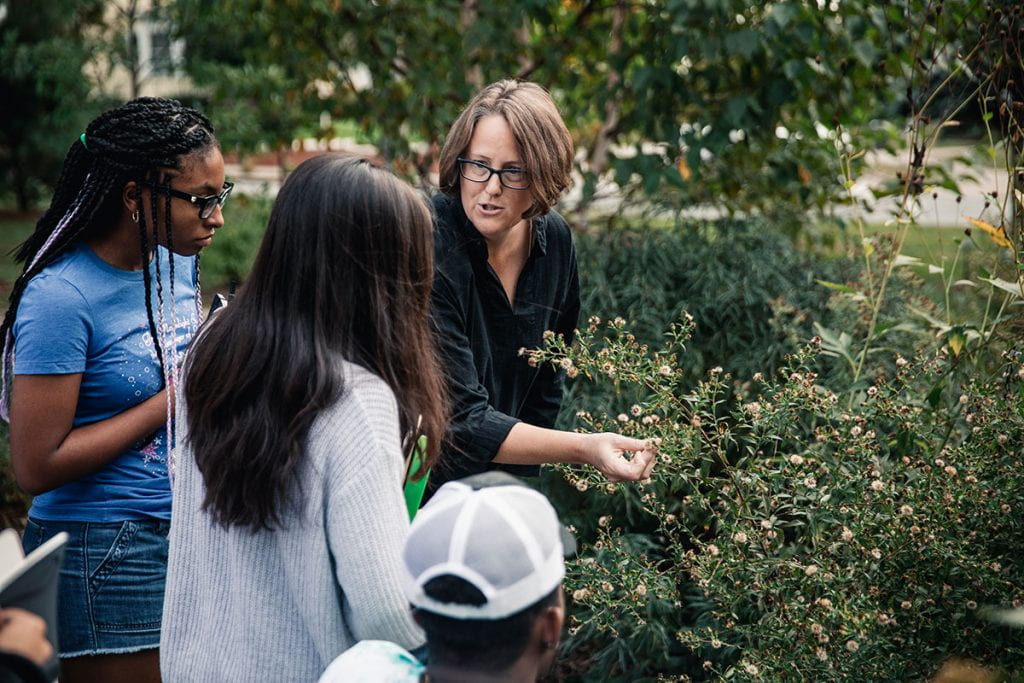
To reach all of the faculty and staff involved in mentoring virtual internships, Bailey contacted the Center for Teaching Excellence for support, leading to CTE-sponsored workshops on mentoring students virtually in September and October.
The workshops allowed faculty and staff members to share resources on mentoring in this new environment and solidifying relationships with companies where students had been placed in prior years. Many corporate partners had no prior experience in this area and needed assistance from mentors to familiarize themselves with virtual internships. Workshop topics included drafting effective internship agreements, offering proper support for virtual internships, and providing effective feedback to interns.
While virtual internships were a step into the unknown, once students began to immerse themselves in these remote situations, it became clear that laptop internships provided more opportunities than originally anticipated, said Bailey. She noted some mentors had concerns that virtual internships would limit students’ exposure to experiential learning, but that frequently was not the case.
“Lots of our community partners have the need for projects that can be done remotely. Students are having networking possibilities, and getting real-world experiences, without having to have the means to travel to a place to do an internship,” said Bailey.
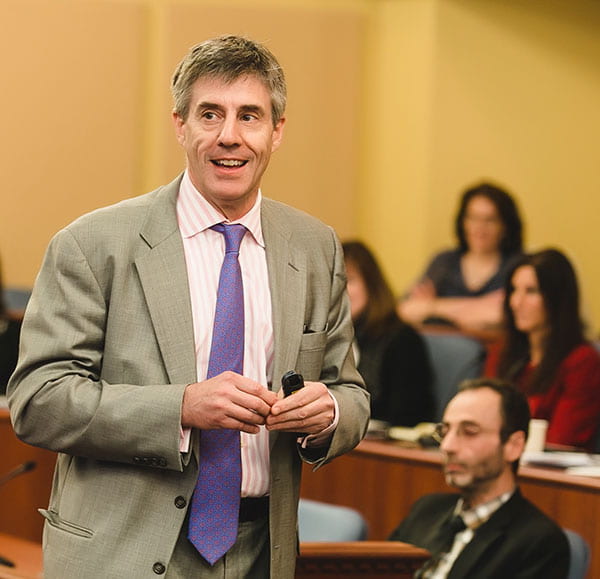
Dr. Dan Horne, professor of marketing and associate dean for corporate initiatives in the PC School of Business, has been working alongside student-interns to ensure they get the most out of these experiences without feeling isolated.
“One of the most important things I want my students to remember while working virtually is the importance of networking. Expanding and solidifying a network is an incredibly important part of the internship process, and this can easily slip away when you haven’t met many people in-person,” he said.
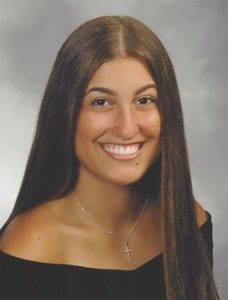
Students have reported feeling a great amount of efficacy, interest, and investment in work projects even if they can’t be physically in the places in which they are interning. One of Horne’s mentees, Ema Bandazian ’22 (Old Tappan N.J.), interned this past summer at Modern Luxury Media, a marketing company that is based out of New York City.
“Dr. Horne’s advising was really encouraging throughout my entire experience. He helped me question my faults, reflect on how I could improve, and motivated me to network as much as possible,” she said.
Bandazian described the perks of working virtually.
“I was often able to sit in on lots of calls and Zoom meetings with executives and other employee members from different states,” she said. “I feel as though if I was confined to New York and their office, I wouldn’t have been able to hear the perspectives and ideas of employees in their headquarters in locations such as Georgia and Chicago.”
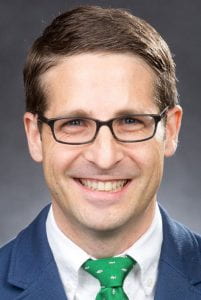
In terms of innovating to meet the needs of COVID-19 virtual internships, two faculty members in the Department of Health Policy and Management (HPM) decided to leverage the experience of PC alumni to assist students in getting the most out of their virtual internships.
Dr. Todd Olszewski, associate professor, and Dr. Robert Hackey, professor, both teach the capstone course in which senior majors need at least 120 internship hours to earn full credit. When the professors realized that they were not going to have many of their usual internship partners available for students due to the pandemic, they started to rethink how their students might obtain real-world experience in the field in a remote environment.
Rather than focusing solely on students’ internship hours, Olszewski came up with a notion of a project-based model, in which students’ placement sites would give them a significant project they would manage during their remote internship.
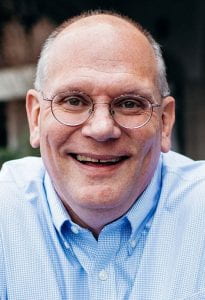
“This model represents the culmination of new skills and capabilities students have been able to hone during the course of their online internship. We really want to pay more attention to building students’ professional development and using these new skills to deliver concrete products, which is something that we didn’t quite have under the old model,” stated Olszewski.
With this new model in mind, Olszewski and Hackey turned to LinkedIn and reached out to the HPM alumni network to gauge interest in taking on undergraduate virtual interns. One of the alumni who responded to Hackey’s appeal was Christina Giaprakis ’04, who works for Crouse Health, an accountable care organization based in Syracuse, N.Y.
With the help of Giaprakis, students interning at Crouse are being trained by professionals in the field, getting hands-on, real-world experiences, while also helping community partners who really need the assistance under the current circumstances.
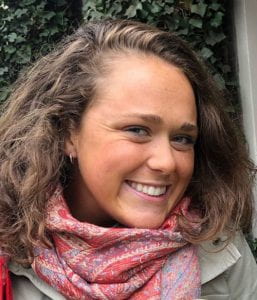
Elizabeth Murray ’21 (Bedford, N.H.) and Sara Platz ’21 (Fairfield, Conn.) are currently working at Crouse as population health interns. The students are working collaboratively on a project in which they are focusing on the gaps in healthcare throughout the multi-specialty practice. Their main role is contacting patients who have not reported for routine or needed medical exams.
“Dr. Hackey has been really great in supporting us all through these internships and giving us advice on how to better present ourselves in the remote workforce. As work environments have changed and are continuing to change, he is trying to best prepare us for what the future may hold,” said Murray.
Platz also capitalized on this experience in preparing her for post-graduate life.
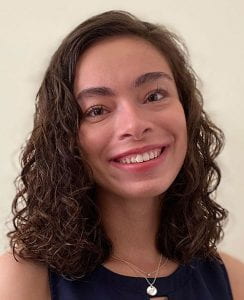
“If I were working in-person in an office setting, there is that possibility that I would be doing small tasks that interns are usually delegated. Instead, I am getting the chance to directly speak with patients, which is a much more valuable experience for me,” she said.
“This is the Friar network at work; this is the alumni network helping the campus in a moment of real need, and it is a win-win for both parties,” stated Hackey.
Another HPM student, Caroline Rivera ’21 (Port Jefferson Station, N.Y.), has been virtually interning for PACE Organization of Rhode Island, an operation providing services to older adults of lower socio-economic status who are categorized as needing “high” clinical care support.
“Essentially, the entire theme of our field experience course has been on building resilience,” said Rivera. “Not only have my professors given me great advice on how to navigate this new virtual outreach, PACE has provided me with a mentor who I meet with weekly to reflect on any obstacles that have come up along the way.”
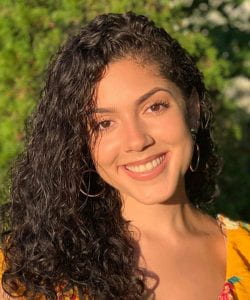
To date, the HPM department has been able to find virtual placements for 33 seniors, and professors are continuing to seek additional arrangements for next semester. As for whether virtual internships will continue after the pandemic, all parties are hopeful that PC will learn to embrace this new model. The early returns appear promising in finding opportunities that might not otherwise be available.
“Last spring, there was a real palpable sense of loss for students who were unable to continue their internships after the world went into lockdown. These virtual internships are the silver lining of a cloudy year, as students are getting the chance to do meaningful work not just in Providence, but around the country,” stated Hackey.
#givingtuesday 2020




